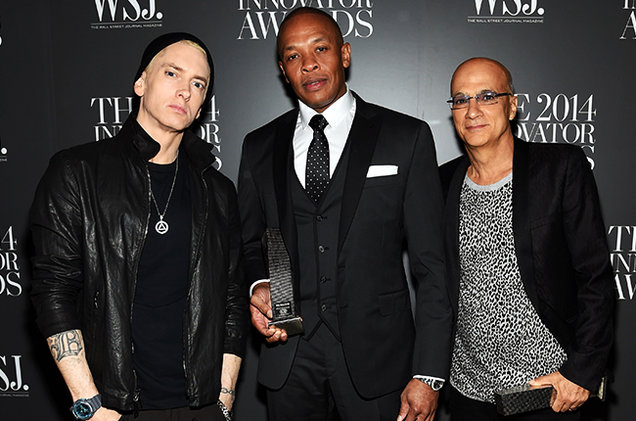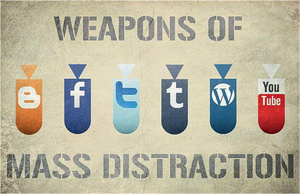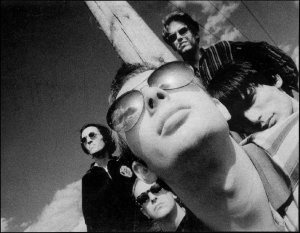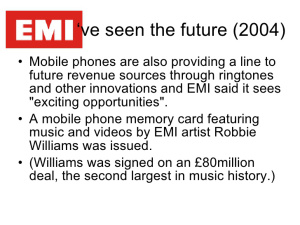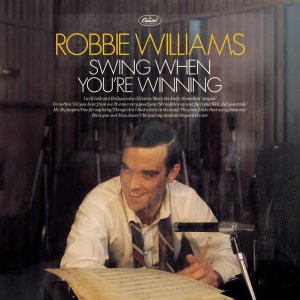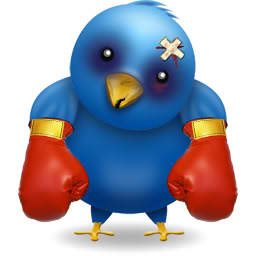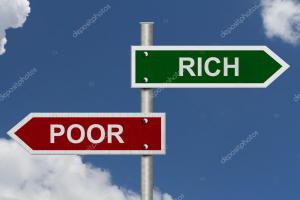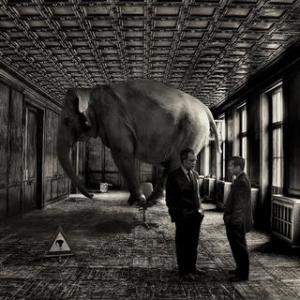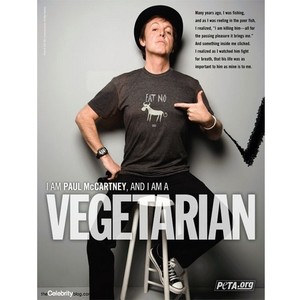Whether we want to or not, social media has not only entered our lives, in some instances, it’s taken them over with seemingly no end in sight. We’re becoming, or have already become slaves to technology without even knowing it, writes the Racing B*tch’s Hans Ebert.
The music industry, for example, never saw it coming despite file sharing site Napster rearing its head and testing the waters some decades ago. Being part of the industry as a senior executive with one of the four major music companies, to us, Napster was a minor blip in the wall. Napster was nipped in the bud.
Suing and shutting down Napster was a hollow victory. It only helped open up the floodgates to all manner of online delivery platforms for the free downloading of music protected by grey online laws, which made everyone start rocking in the free world with a new generation of consumers believing that everything was theirs and for the taking- for free. The appetite for everything, no matter how useless, has today become voracious and addictive. “Feed me! Feed me!” they go. “Make me fabulously fatuous and shamelessly shallow.”
Hardware met software, and any type of safety pin on the grenade was pulled off and thrown into the midst of every industry. The dams burst and the ripples of change became a tsunami of froth. Andy Warhol’s prediction that in the future everyone will have their fifteen minutes of fame was upon us.
Entitlement became the main course, and, somehow, everything was allowed to be taken with no one understanding why and how things had to be reined in and policed in order to bring some control to weather the reigning chaos.
Today, at least in the music industry, there are inexpensive subscription services, especially for the streaming of music, and with even those musicians constantly looking at ways of finding a financial return for their work, and complaining that there’s no answer or solution in sight, happy to embrace a service like Spotify, where they can create their own playlists by, basically ripping off recordings by other artists. See the hypocrisy of it all?
It appears that there is an inability to grasp the fact that sleeping with and feeding the enemy is not the answer. Still, it’s all about “sharing” and “belonging” and providing content that keeps these delivery platforms pumping along. They make the big bucks, we “engage” and work for them for free.
Have we become a narcissistic and lonely society, where the real world has been hijacked and we’re living lives (and lies) on Facebook, Twitter, YouTube, Instagram and SnapChat? Think about it. Is the art of conversation dead and has “social media” actually created a pretty unsociable society where we hardly have time for each other, but will always have the time to update profiles and “share”. There’s a counter culture at work and, seemingly, it cannot be stopped.
The horse racing industry has been slow off the blocks to embrace all this “social media” probably because what professional punters and horse racing purists once ever needed were websites from where they could find and download all the information needed.
Today, the online experience of the sport is perilously close to overtaking the on-course experience. The current buzz phrase of ‘live’ streaming everything happening in the real world, and with scant regard for the quality of this product, has added another cog in the wheel of escaping from being willing prisoners enjoying life without anyone for company. It’s more OK Computer with those in charge of their product seemingly unaware of the dire consequences to their businesses.
In a nutshell, if everyone can “be here” without “being there”, surely, the need, or attraction to want to be part of any gathering in the real world, will soon become unnecessary?
If this can affect attending a concert, the restaurant business, gaining access to every form of entertainment, ordering everything online and with online dating sites putting that final nail into that word called Love, the odds are that this same “ease of access” will include not needing to attend the races, watch the races, hear those thundering hooves in our heads, cheer on those close finishes and celebrate wins.
Is all this quickly becoming a thing of the past? Or has it already become part of the past? Is all this ‘live’ streaming making horse racing “cool” by bringing it to a wider audience, or is it simply cutting the sport off at its knees by robbing it of its excitement factor? A new generation are going to suddenly flood through turnstiles because of something they might have seen by chance online- and which they immediately bought into? Really?
There are, however, those very special times like at an HKJC Happy Wednesday where social media has actually made a new generation visit Happy Valley racecourse on a regular basis and interact with everything and everyone around them. One really has to be there to understand why and how this works.
As has been written here for almost six years, there’s so much the horse racing industry can learn from the foibles and arrogance and ignorance of the biggest global music companies. But when? The problem for us music executives at the time was staring the problem in the face and trying desperately to be its friend. Guess this is where “belonging” first came into play. We knew something was going on, but we didn’t know exactly what it was, how to manage it, and how it would change the face of the music business forever.
There were the cosmetic changes to show that we were embracing this “digital world” by suddenly hiring “digital marketing” armies from technology companies like Yahoo. This was done because of knee jerk reaction and without knowing how these new hires would work with the traditional music marketing teams. Also forgotten was that these new hires seldom knew anything about, well, music- the back-catalogues, the whims and fancies of artists management, and the fact that big name acts like Radiohead and Gorillaz were ahead of the curve when it came to technology and busy creating their own brave new worlds.
In 2007, Radiohead who were signed to EMI in 1992 decided not to renew their contract with the music company.
They went rogue, and, almost to teach EMI a lesson of things to come, decided to make its “In Rainbows” album free for everyone to download, or, at least, have fans pay whatever they thought it was worth. Very few paid a cent for it. Did Radiohead care? Of course not. They had a tour coming up.
Us with EMI saw what was happening and did nothing. It seemed okay to lose money. Wait. Actually, we did do something: Every music company suddenly introduced “Digital Days”- just another lame excuse to have a meeting in some exotic location, where some representatives from Facebook and YouTube were invited to explain to us music executives how their business models worked. What was never asked was how their business model could work with our business model and create an even bigger industry for everyone. So much for sharing and engagement.
Artists and artist management were smarter. They knew that the real money was in touring and the merchandising tied to these tours. They were also those who first made the move to continue down this path, but with their partners being technology companies.
The music companies were left to pick up the crumbs. But before this, they were happy to fund those ill fated 360 Degree Deal contracts with artists where the idea was to share profits from tours, endorsement deals etc.
The problem was there weren’t many takers. EMI and Robbie Williams signed a 360 Degree Deal for three years during which time the artist’s management cleverly used the music company’s money to set themselves up, and forge their own partnerships before telling their former partner that they weren’t needed. There was nothing EMI could do to enhance Robbie’s career. The music company had been taken for a £80 million in ride.
As for the horse racing industry, a few years ago there were those nattering about “engagement” and being “customercentric”, which had this writer wondering, But why would any of this be needed for an already captive and ageing audience? Somewhere along the way, in the pursuit to be part of whatever the hell was “trending”, it was decided to jump on the social media bandwagon and make mewing sounds to seem relevant. But relevant to whom?
Those who had stumbled on second hand information about click bait and hashtags suddenly emerged in racing clubs as forward thinking executives to spread their second hand news to order takers as being something new to be obeyed without thinking. And this is where horse racing is at today. Nowhere really. Not really, unless one was to look at this obscene preoccupation with raising prize money for more and more races, and which will only help create a Them versus Us industry where not everyone can afford to play.
Horse racing continues to talk to itself. It still doesn’t understand that what happens in Australia or South Africa or America or Europe or Hong Kong doesn’t stay in these places- not in the 24/7 online world where news and information travel and is shared.
Myopic and insular thinking has been the downfall of many industries along with the inability to look beyond one’s own backyard and get out more often. What happened to being as curious as Alice, Mad Hatter?
The problem and the main objective is not being addressed: To make horse racing attractive to those millions who have no idea whatsoever of how it all works, and who are equally clueless- and uninterested- in being part of a sport they perceive to be something irrelevant, there’s a need to tackle the elephant in the room named Dumbo Gambling.
The gambling albatross can’t be ignored, but it can be relegated into the background by focusing on everything else racing clubs can provide to enhance that on-course experience.
If this is not being done, you’re looking at a racing club run purely with self serving agendas at work. It’s certainly not being “customercentric”. It’s not even trying to bring horse racing into the mainstream consciousness by being part of the world of sports entertainment where that same elephant in the room is present and thriving. But do any of these sports get singled out for scrutiny? And if they don’t, why not?
Of course, there are also the arch enemies to the sport- and we all know who they are. They’re smart marketers with big name celebrities in their corner, and able to steamroll their way over any arguments put forward.
For years, they have been fine-tuning their attacks, their agendas, and also have the mainstream media on their side. What does the horse racing industry have on its side? What’s its ammunition for the future? What and where’s the long-term plan for sustained turnover and attendance? Who are the heavy hitters on the side of horse racing?
Some who are knee deep in horse racing scoff at the emphasis on the word “turnover”. Call it what you will, but turnover is the engine that keeps horse racing clubs running. No turnover or any sharp declines in it, and attendance figures impact the business of horse racing, and could even be seen as a waning interest in the sport.
The business of horse racing is no stroll in the park. Neither is management of a sport that to very many is not likeable. Some want nothing to do with horse racing because they don’t wish to see horses being whipped. Yes, yes, there are many reasons as to why and how a whip is used. If not in horse racing, these arguments will never be bought. The subject will, however, make the mainstream news and be discussed online ad infinitum.
Then there are those who will enter horse racing hoping to walk away having made millions. When this doesn’t happen after 3-4 times of trying, they’re off to look at new financial opportunities. Why keep backing the wrong horse?
Somehow, horse racing has to be seen as being likeable- everything from constantly enhancing the on-course experience, and online marketing and communications strategies to those racing executives, who need to have the people skills and open mindedness to engage with customers, business partners and potential sponsors. Easier said than done.
These days, quite a number of executives in the music industry are talking about the documentary “The Defiant Ones”, the business success story of music producer Jimmy Iovine and rapper Dr Dre.
Dre wanted to get into selling sneakers. Iovine’s advice: Speakers not sneakers. From there, Beats Electronics was born and eventually sold to Apple for US$3 billion with Dre and Iovine becoming senior executives of the technology company in the process. It’s inspiring stuff about two music men who turned ways of looking at music on its head. Where’s horse racing’s defiant ones? They’re desperately in need. Now.
Around fifteen years ago, this writer was being buried alive in horse racing- a self-made choice probably borne out of excess and the boredom that comes with excess. It was all consuming. Even the then-marriage was relegated into a cameo. Then, one day, like any 12-step programme, the demons were exorcised.
Though still a racing fan, I look at the sport and those in it differently. Divorcing myself from many involved in horse racing helped enormously. The marketing of horse racing is today part of my portfolio that includes launching McDonald’s in Hong Kong and MTV Asia when in advertising and working with artists like Bowie, Robbie and the wonderful Miss Norah Jones when in music.
Being involved in the Happy Wednesday brand has been part of another learning process, thanks to an excellent mentor. As a business, horse racing is definitely not one dimensional. It’s a multi headed beast that needs to attract better people to make the industry progress. They’re around. Attracting them to come along for the ride and be part of the future of the sport from a global perspective and work with talented teams is the challenge. If this happens, it can certainly provide some new answers instead of covering the same old terrain and getting caught up in the quagmire of stunted thinking.
(Reproduced with thanks to Hans Ebert and RacingB*tch)


